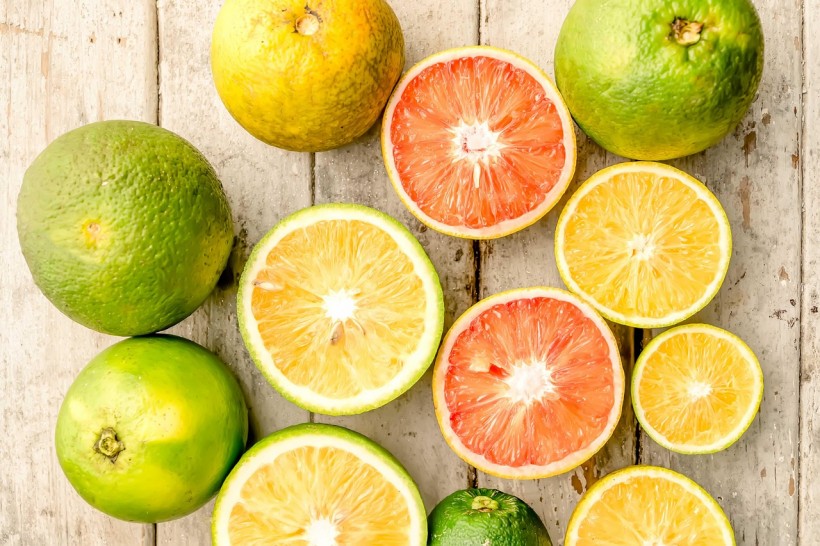People who eat citrus while exposed to sunlight, particularly during summer, received some advice from a dermatologist regarding its possible hazards to their bodies. According to the doctor, the organic compounds that are present in these fruits can produce reactions to your skin.
Potential Risks of Exposing to the Sun While Eating Citrus Foods
 (Photo : Pixabay/Obodai26)
(Photo : Pixabay/Obodai26)

On Tuesday, Dec. 19, an expert on hyperpigmentation, the complexion of skin, social media celebrity, and cosmetic formulator, Dr. Vanita Rattan, posted a video online in which she warned her followers about consuming pineapples and citrus fruits while they were exposed to the sun.
The condition known as hyperpigmentation happens when part of the skin becomes darker than other parts of the skin. As mentioned, several illnesses and environmental variables, such as hormonal shifts, acne, medication, UV exposure, and dietary shortages, can all contribute to the development of this disorder.
Rattan noted that furocoumarins, which are organic chemicals and can be found in a variety of citrus fruits, have the potential to undergo a reaction when they are exposed to ultraviolet light. It reportedly causes severe discomfort that happens 24 to 48 hours after consumption. In addition, redness, blistering, and skin flaking could also o cur.
Inflammation of the skin is the primary symptom of phytophotodermatitis, a disorder caused by the interaction of light (photo) and compounds originating from plants (phyto). Moreover, citrus fruits and various herbs, including carrots, celery, parsley, and figs, are all sources of these compounds, and many are in high con entrations in these foods. In epidermis cells, furocoumarins can also stimulate the production of excess melanin. Hyperpigmentation is a condition that is especially prevalent for those with darker skin.
Read Also: 300,000 Airfryers Sold at Walmart, Kohl, and Target Recalled Due to Dangerous Burn Hazard
How to Avoid Hyperpigmentation?
To avoid hyperpigmentation, make sure to properly wash your hands and arms with soap and water before beginning to prepare meals, especially if you are going to be outside or are about to go into the sun and if you are going to be eating citrus fruits and other products that contain a lot of furocoumarins.
As per Dermatologist Melissa Piliang, MD, it is essential to be aware of this possibility and to engage in sun-safe practices. It includes avoiding the sun whenever possible and always using sunscreen, which you should be doing in any case if you can.
On the other hand, home remedies for phytophotodermatitis are often effective and do not require the assistance of a medical professional. Your skin can be soothed by washing the region with gentle soap and water or soaking in a cool oatmeal bath. After that, apply a washcloth soaked in cool water to the area where you have a rash. Repeat this action multiple times throughout the day. Thus, itching, soreness, and swelling will likely lessen.
Furthermore, if you want to relieve inflammation, you can use hydrocortisone cream or anti-itch creams, but your skin should not be injured when you use these products. Treatment with oral antihistamines or even a steroid injection or pill may be necessary for severe cases. It is also essential to consult your physician if the area continues to be painful or if the blisters are grave.
Related Article: The Top 10 Foods That Can Ruin Your Skin
To keep up with the latest news on trending recipes, food safety, and more, follow Food World News!









